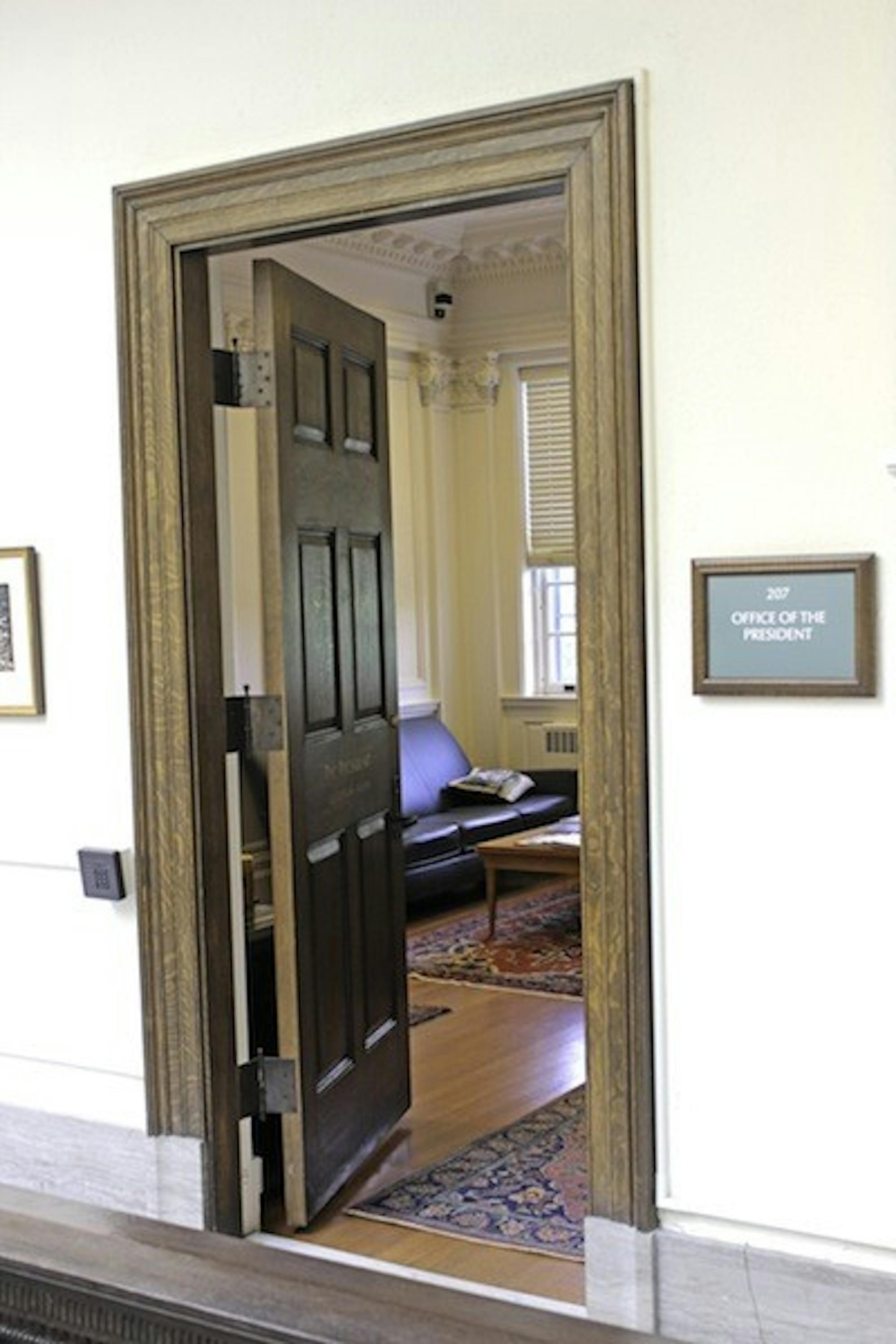Abolishing the College’s Greek system was the most popular online submission that the presidential steering committee for Moving Dartmouth Forward received, the group announced on Wednesday. The preliminary findings released by the committee did not include feedback from means other than online submissions, such as discussion groups.
The committee received more than 250 online suggestions to abolish the Greek system. The next most popular suggestion for the creation for more alternative social spaces and activities received fewer than 125 suggestions. Other proposals included creating and enforcing harsher penalties for drinking and a zero-tolerance policy for sexual assault.
Submissions relating to the Greek system received the highest number of suggestions, just shy of 600. Both sexual assault and drinking received more than 300 suggestions each.
The majority of those who submitted suggestions about the Greek system said they considered it a problem. Around 450 said they saw it as a problem, while just over 100 said that it was not.
Over 1,600 people submitted suggestions online as of July 30. Alumni made up more than 1,200 respondents, while fewer than 100 students submitted suggestions. More than 100 parents and fewer than 100 professors also responded. The report did not inlcude exact figures.
Presidential steering committee chair and English professor Barbara Will declined to be interviewed because she did not feel comfortable extrapolating potential recommendations based solely on the online suggestions. She wrote in an email that it is important to remember that most of the online feedback came from alumni, not students. She said that the committee has spoken with students through 35 facilitated discussions.
“Current students need to realize their opinions and ideas are just as important to us as those of the other members of our community,” she said in the email.
Will said that the committee will release preliminary recommendations in the fall after members gather more responses from the College community. Summer Panhellenic Council president Charlotte Kamai ’16 said that members of Greek houses recognize that alums who responded are in favor of abolishing the Greek system but that she believes the suggestions do not represent all opinions. There is a currently a spectrum of options for the Greek system, she said, ranging from full abolishment to leaving it as is.
“We are working on the best way to move the system forward by finding the best place on the spectrum for it,” she said.
She added that while Greek leadership is working to address the root problems with the Greek system, many problems with current campus climate do not come exclusively from Greek life.
“Alumni don’t always recognize that societal problems can be viewed as Greek problems,” she said. “The Greek system is not the cause of everything that is wrong with Dartmouth’s social climate.”
Of 30 students interviewed, five said that they thought the idea of abolishing the Greek system was interesting but would be logistically difficult, while the rest said they were opposed to the idea.
Yvette Zou ’16 said that because of the drastic nature of the possible change, she does not think it would be doable.
Desmond Fambrini ’16 said that he is unsure about getting rid of the Greek system, since the majority of students are involved in it.
“I feel like Moving Dartmouth Forward should be more about adjusting and refining, not changing such a huge aspect of life,” he said. “It’s a large part of people’s lives. I feel that we shouldn’t jump to rash decisions.”
Kayla McFarland ’16 said that although she has not yet fully formed an opinion concerning the issue, she feels the number of students who participated in the online survey conducted by the committee was too low to be an accurate sample.
Phil Sheridan ’16 reiterated McFarland’s sentiments, saying that he cannot think of any individuals that would want the entire system to be abolished.
The Greek system provides an important opportunity for students to develop their leadership skills within a collegiate setting, Chad Rairie ’16 said.
“Greek house leadership is often students’ first time managing a real budget, risks related to hosting events and responsibility over said events, as well as planning and coordinating events with faculty and alumni,” he said. “The Greek system also provides tens of thousands of dollars in philanthropy to local and national charities each year which would not be coordinated, collected and participated in at such a high rate and frequency without the Greek system.”
Matt Klein ’16 said that the fraternities, sororities and coed houses present students with the opportunity to form lasting bonds between individuals of diverse interests and backgrounds, which would not have otherwise been possible.
Kamai said that Panhell has worked with the committee through co-hosting discussions, including one last week that gave affiliated women a chance to share their opinions.
In September, the committee will release their top ideas and solicit community feedback. In October, they will present their recommendations to College President Phil Hanlon.
Inter-Fraternity Council summer president Chase Gilmore ’16 could not be reached for comment by press time.
Other members of the presidential steering committee either referred reporters to Will or could not be reached for comment by press time.
Interim Dean of the College Inge-Lise Ameer did not respond to a request for comment by press time.




